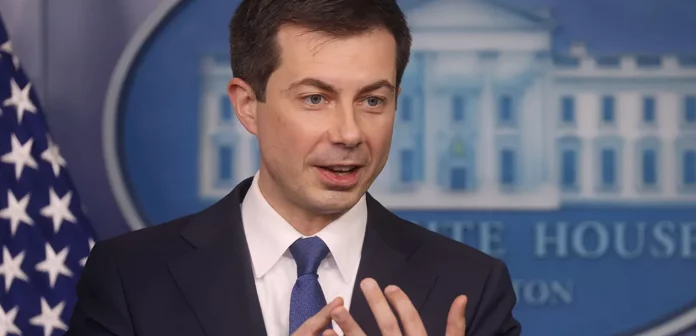Secretary of Transportation Pete Buttigieg stated that the Inflation Reduction Act, which was recently passed, will improve American living standards. He also criticised the recent rise in cancellations of flights across the U.S.
Buttigieg stated that the act will lower American costs, since the annual inflation rate reached 9.1% in the 12-months ended June according to data published by the U.S. Department of Labor in July. According to the Congressional Budget Office, the Inflation Reduction Act would have a “negligible effect” on inflation in 2022 and very little impact on inflation in 2023 depending on other factors such as the Federal Reserve.
Buttigieg stated that the act would reduce inflation by lowering costs for prescription drugs, insulin for Medicare subscribers and home utility bills.
Buttigieg also praised the Department of Transportation for its support of passengers whose flights were cancelled in the past few months. According to FlightAware, Tuesday’s report showed that there were more than 2,500 cancellations of domestic and international flights.
According to the secretary, he felt for Americans experiencing flight cancellations in recent months. He stated that he had been on his own flight cancelled several times during the summer.
Buttigieg presented new guidelines to expand passengers’ rights during long delays, as well as other environmental factors.
The secretary of Transportation stopped by Tampa to discuss “RAISE,” which is part President Biden’s bipartisan legislation on infrastructure. This grant will add port capacity and create 800 full-time jobs. The grant will also help reduce the emissions at Port Redwing.
Biden signed the Inflation Reduction Act by President Obama on August 16. Many Democrats condemned GOP lawmakers for failing to support the measure.
According to Senate Democrats, Biden stressed that the $739 billion Inflation Reduction Act won’t raise taxes on Americans earning less than $400,000 and also invests $369 billion in “Energy Security and Climate Change.”


